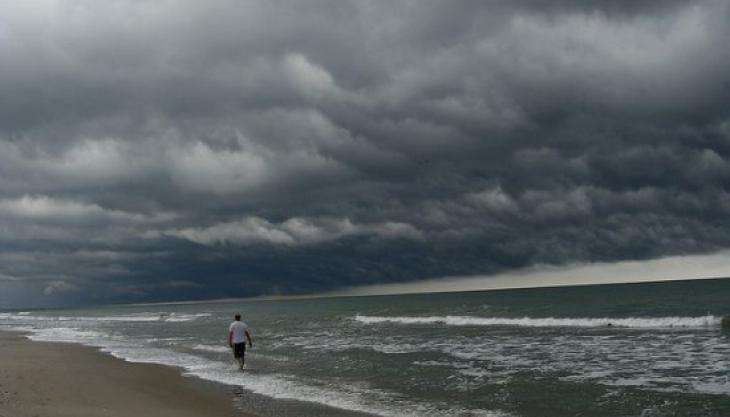Consumer Alert: North Carolina Storms Bring Scams in Their Wake
Submitted by Rachel R on Fri, 10/09/2015 - 11:39am

Don't get scammed after a natural disaster like Hurricane Joaquin
Image Source: Flickr User zodia81
The first week of October brought Hurricane Joaquin to the coast of North Carolina as part of a larger storm system. We’ve seen heavy winds, flood-inducing rains, and high tides. This has caused damage to homes, roads, and property with water damage, falling tree damage, and roofs ripped away. Now that the storms have blown away, it’s time to assess damage and make repairs. Unfortunately, as natural disasters move out, scammers often move in to prey on those who need repairs or assistance. In today's scam alert, we'll show you how to protect your wallet after a natural disaster.
Beware scams after natural disasters!
There are several scams that usually follow in the wake of natural disasters. Some seek to steal money from you for repairs they never intend to make. Still others ask for money for non-existent charities locally and for disasters around the world only to put the money in their pocket and help only themselves. Today we’ll take a look at how to recognize a scam and stop it in its tracks.
#1 Watch out for people coming to your door
Fraudsters will typically go door to door after instances like major storms. Some may be rattling a can and asking you to contribute to a relief organization. Others may offer to repair your roof or another area of your home damaged by a storm. You should always turn these people away, no matter how authentic or convincing they seem.
If you want to give money to help those struck by natural disaster, consider giving to The Red Cross or using a third party verifier of charities like CharityNavigator.org to find a legitimate charity. Don’t hand any money or checks to door-to-door collectors who may be hustlers looking to benefit off the backs of a disaster.
For home repairs, don’t hire people who come to your door. Do your research and find a repair company with an excellent reputation and no Better Business Complaints. You may want to work with your insurance company – if your repairs are covered – to get a list of recommended local resources for repairs. Your insurer may warranty work down by specific contractors.
#2 Don’t pay for work up front
A sure sign of a scam is to ask for payment up front. That way, they can run off with your cash and do nothing to help you get the repairs you need. You may have to pay a small down payment, but pay it with a credit card so you can file a dispute if they don’t show up, or the work is poor quality. And don’t pay for the repairs in full until the work is complete, and you have inspected it to ensure the work is done as promised and is satisfactory. Door-to-door scammers will always ask for money up front. Don’t fall for it.
#3 Shop around for the best price
A low price promised by a soliciting “repairman” should be a red flag. You get what you pay for, but you can also shop wisely for the best price from a reputable contractor. In addition to checking reviews and the BBB to make sure the repair firm is legitimate, get estimates from two or three so you can see what type of work each recommends, what materials they plan to use, and what they propose as the bottom line price. This can help you make an educated decision and allows you to budget for the cost of repairs less any insurance payments with deductibles in mind as well.
#4 Hang up on solicitation calls after a disaster
You may get calls from “repair companies” or “charities” after a local disaster or from “relief organizations” after an international event. Don’t engage with these people. Ask them to take you off their calling list and end the call. If you want to give money, you can figure out for yourself how best to do it by finding a reputable organization. And if you need repairs, you should find the best contractor for your purposes rather than falling prey to pushy cold calling sales representatives.
Be sure to check out any charity or repair firm before you hand over any money. You can check with the North Carolina Department of Justice (ncdoj(dot)gov) to see if complaints have been made about an organization. Alternately, call (888) 830-4989 to verify an organization’s professional standing with the North Carolina Secretary of State.
If you’re deep in debt and looking for a financial fresh start, contact the Law Offices of John T. Orcutt to discuss the benefits of North Carolina bankruptcy. Call +1-833-627-0115 to schedule a free bankruptcy consultation at one of our offices in Raleigh, Durham, Fayetteville, Wilson, Greensboro or Wilmington.
Debts Hurt! Got debt? Need help? Get started below!
Serving All of North Carolina
- Bankruptcy Attorneys Raleigh NC (North)
- Bankruptcy Attorney Fayetteville NC
- Bankruptcy Attorney Durham NC
- Bankruptcy Attorneys Wilson NC
- Bankruptcy Attorneys Greensboro NC
- Bankruptcy Attorneys Southport NC
- Bankruptcy Attorneys Wilmington NC
Bankruptcy Attorneys Raleigh NC (North)
6616 Six Forks Rd #203 Raleigh, NC 27615 North Carolina
Tel: (919) 847-9750

Bankruptcy Attorney Fayetteville NC
2711 Breezewood Ave Fayetteville, NC 28303 North Carolina
Tel: (910) 323-2972

Bankruptcy Attorney Durham NC
1738 Hillandale Rd Suite D Durham, NC 27705 North Carolina
Tel: (919) 286-1695


Bankruptcy Attorneys Greensboro NC
2100 W Cornwallis Dr. STE O Greensboro, NC 27408 North Carolina
Tel: (336) 542-5993

Bankruptcy Attorneys Southport NC
116 N Howe St. Suite A Southport, NC 28461 North Carolina
Tel: (910) 218-8682

Bankruptcy Attorneys Wilmington NC
116 N. Howe Street, Suite A Southport, NC 28461 North Carolina
Tel: (910) 447-2987
